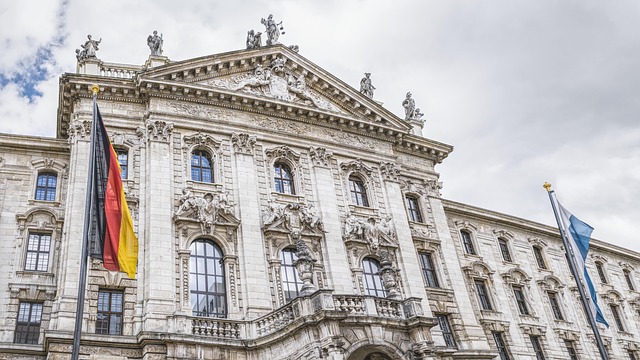The Sacred Tradition of the Heavenly Court in Religious Practices
Throughout the ages, the concept of a heavenly court has woven its way into various religious traditions, enriching spiritual practices and fostering communal beliefs. This sacred realm, often envisioned as a divine tribunal presided over by celestial beings or deities, serves as a foundation for understanding justice, morality, and the afterlife in many cultures. The representation of the heavenly court varies across religions, yet its essence resonates with a universal yearning for connection to the divine and a sense of order in the cosmos.
In many faiths, the heavenly court symbolizes the ultimate arbiter of souls, where divine justice is meted out according to one’s actions on Earth. For instance, in Christianity, the concept of divine judgment is vividly portrayed in the Book of Revelation, where souls are judged before God. This portrayal not only emphasizes accountability but also instills hope, as believers anticipate the embrace of mercy alongside judgment. The communal rituals surrounding these beliefs, including prayer and intercession, serve to strengthen bonds between individuals and their faith, creating a sense of belonging within the heavenly fold.
Similarly, in ancient Egyptian religion, the heavenly court is personified by the scale of Ma’at, where the heart of the deceased is weighed against a feather to determine purity and worthiness for the afterlife. This vivid practice illustrates a profound understanding of moral balance and the consequences of one’s life choices. Rituals associated with this practice, such as the Offering of the Heart, establish not only personal accountability but also a communal ethos where the actions of one impact the collective soul of society.
The Islamic tradition also embraces a heavenly court, where the Day of Judgment holds a central place in belief. The concept of accountability extends beyond individual actions to encompass community ethics, urging followers to live justly and compassionately. The shared observance of prayers, recitations, and acts of charity fosters a collective consciousness of the divine’s presence, reinforcing the belief that their deeds are recorded and weighed in the grand cosmic scale of justice.
In Eastern religious traditions, such as Hinduism and Buddhism, the heavenly court manifests in the cycle of karma and reincarnation. Here, individuals face the consequences of their actions in multiple lifetimes, echoing the theme of cosmic justice. The rituals and ceremonies performed in honor of ancestors serve as a bridge between the earthly and heavenly realms, illustrating a deep respect for the cycle of life, death, and rebirth that encompasses all beings.
The heavenly court not only represents the divine oversight of human affairs but also encapsulates the collective yearning for justice, meaning, and connection within religious traditions. The rituals, prayers, and community practices that spring from this profound belief reveal a shared human quest for understanding our place in the universe and the moral fabric that binds us all. As individuals gather to partake in these sacred traditions, they simultaneously affirm their beliefs and nourish their spiritual lives, reminding us of the importance of the heavenly court in guiding our journeys.




